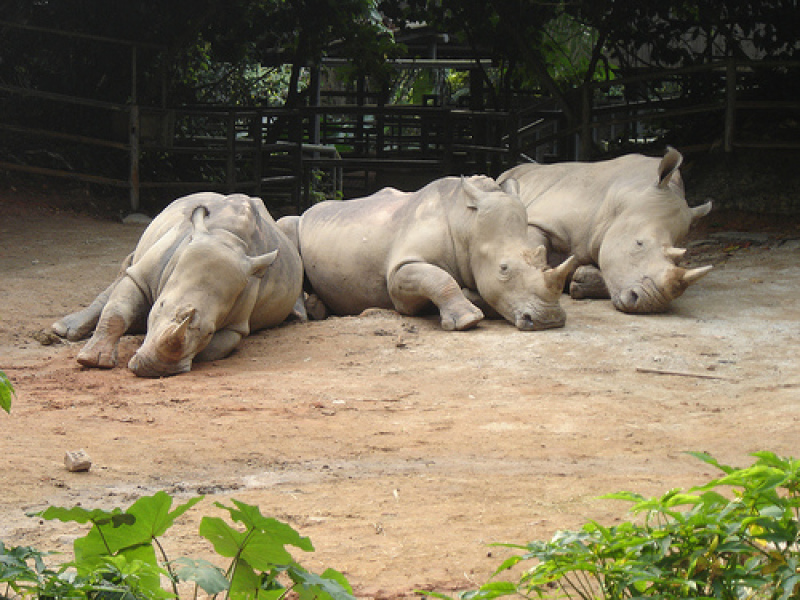
Rangers of South Africa's Kruger National Park in Skukuza rounded up about 45 rhinos this month and placed them inside the country's wildlife reserve, according to Fox News.
During a recently conducted operation covered by media reporters, rangers from a helicopter used tranquilizer darts to sedate the large animals.
The rhinos were then blindfolded, tagged with a microchip for monitoring and identification process, and placed inside trucks that transported them to the protected area.
The operation was conducted to protect the animals from poachers, who rangers say kill rhinos because of the demand for their horns.
Being the home of around 80 percent of the entire rhino population in the world, South Africa has become the favorite hunting spot of poachers. Rangers explained most of the poachers come from Mozambique and hunt before the sun goes down.
In 2014 alone, the Kruger National Park reported that 1,020 rhinos have been killed by the poachers, Daily Mail has learned.
In an effort to conserve South Africa wildlife, officials of the national park established a protected zone that spans 5,000 square kilometers.
Markus Hofmeyr, Kruger National Park's veterinary services head, said the reserve "basically ensures that you've got a foundation of animals that are secure and that you can use as a source population to take elsewhere."
To ensure the security of the zone and the animals, the park will use a variety of methods. These include deploying teams of park rangers, using aircrafts and installing surveillance devices in the area. The park will also coordinate with South Africa's military forces to ward off poachers.
A portion of the funds used by the park to establish the protected zone was donated by Howard Buffet, the philanthropist son famous investor Warren Buffet. The younger Buffet gave almost $24 million to aid Kruger National Park's operations against poachers, according to the Washington Post.
"This is a criminal network that reaches around the world," Buffet said regarding the issue. "Proceeds from ivory, rhino horn and other goods are funding conflicts in Africa and radical groups elsewhere."
"The best way to stop this is to cut off the money to those organizations, and that's a part of what we're doing while also saving the rhino," he added.


















